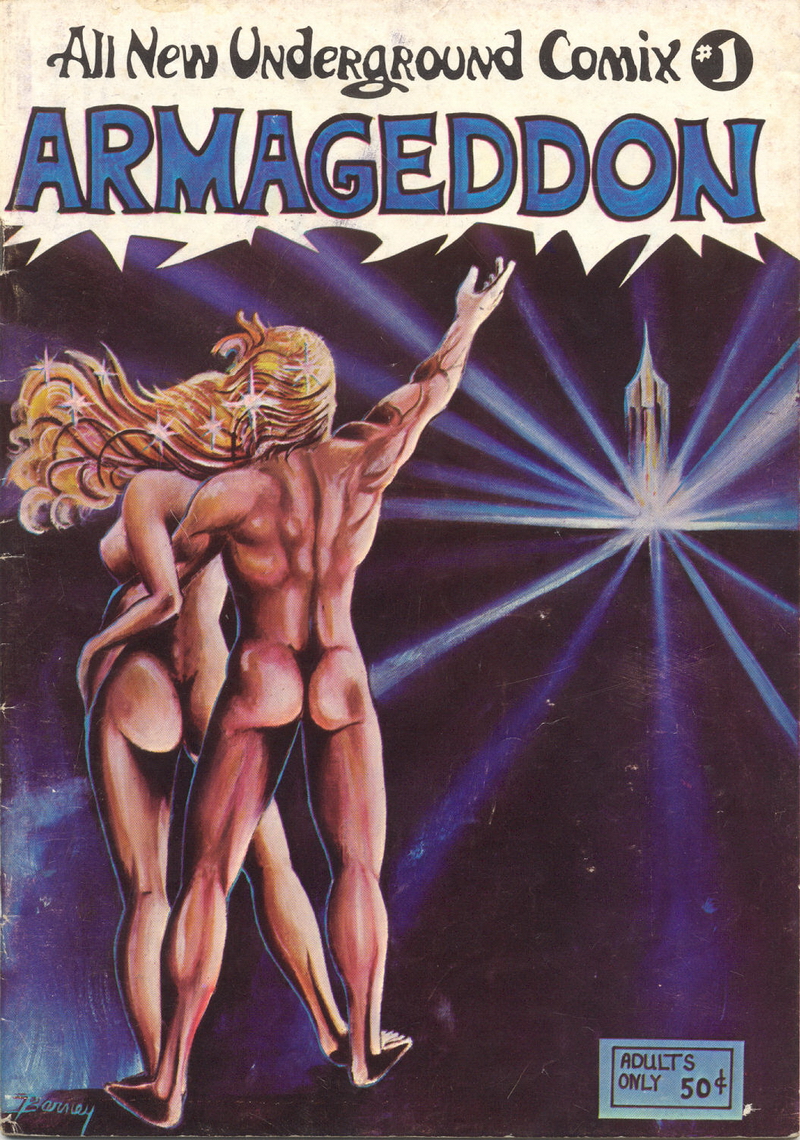armageddon

armageddon
Last Gasp 1972-76
The first title in the All New Underground Comix series turned out to be the most successful, at least from a commercial standpoint. Barney Steel’s Armageddon is one those comic series that stands as a personal statement from a singular comic creator. It delivers a diverse range of tales that touch on politics, race relations, eroticism, the cosmos and betrayal. At the same time, Steel employs some of the most awkward yet passionate dialog in the history of comics, sometimes reminding me of the didactic script of Jack Katz’s The First Kingdom and other times reminiscent of the most tawdry letters from an old Penthouse Forum. When I critique Steel’s writing as “solid,” I am giving extra credit for his being one of the most unique (for better or worse) comic writers in comics.
Leonard Rifas reflects briefly on the Armageddon comic book series in his comprehensive (and outstanding) ImageTexT article on racial imagery in underground comics. Rifas reports that “Steel’s Armageddon comics were widely regarded within underground cartoonist circles as bizarrely right wing.” I don’t doubt the veracity of Rifas’s statement, but then I must add that I don’t perceive Armageddon in the same light as the underground cartoonist circles. When reading any issue of Armageddon, the words or images of right-wing pundits Bill O’Reilly or Ann Coulter hardly leap to mind.
As Rifas himself observed: “Steel depicted white and black communities as equally racist and his ‘solution’ – along radical individualist lines – was for people to forget race and drop out of society, returning to an economy based on gold and bartering.” That sounds like a libertarian idea, but not necessarily right-wing libertarian. Granted, there was a controversial image in Armageddon #1 of Martin Luther King, Jr. sodomizing Alabama Governor George Wallace, but even the effect of that cartoon seems more reflective of a warped mentality than a racist attitude (when you consider which character is doing the fucking).
Steel’s suggestion that people drop out of society and return to a gold- and bartering-based economy hardly seems out of touch with today’s libertarians. Libertarians may adamantly oppose health care reform, but they also vigorously defend the first amendment and believe that government should stay out of American bedrooms and leave the potheads alone (as long as they ain’t hurtin’ nobody). Steel, like Ayn Rand and the objectivism philosophy that inspired some of his stories, seems a lot closer to Robert Crumb than Rush Limbaugh.
Though scarcely a classic series in the underground ouvre, Armageddon is still recommended reading. Just be prepared for some of the most purple prose you will ever encounter, in comic books or anywhere else.



